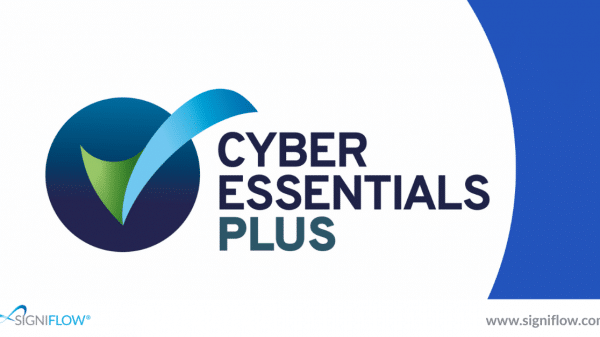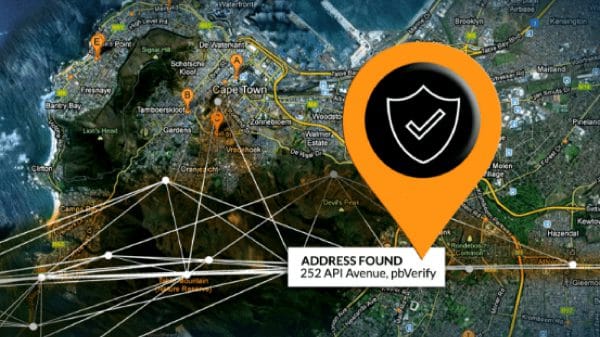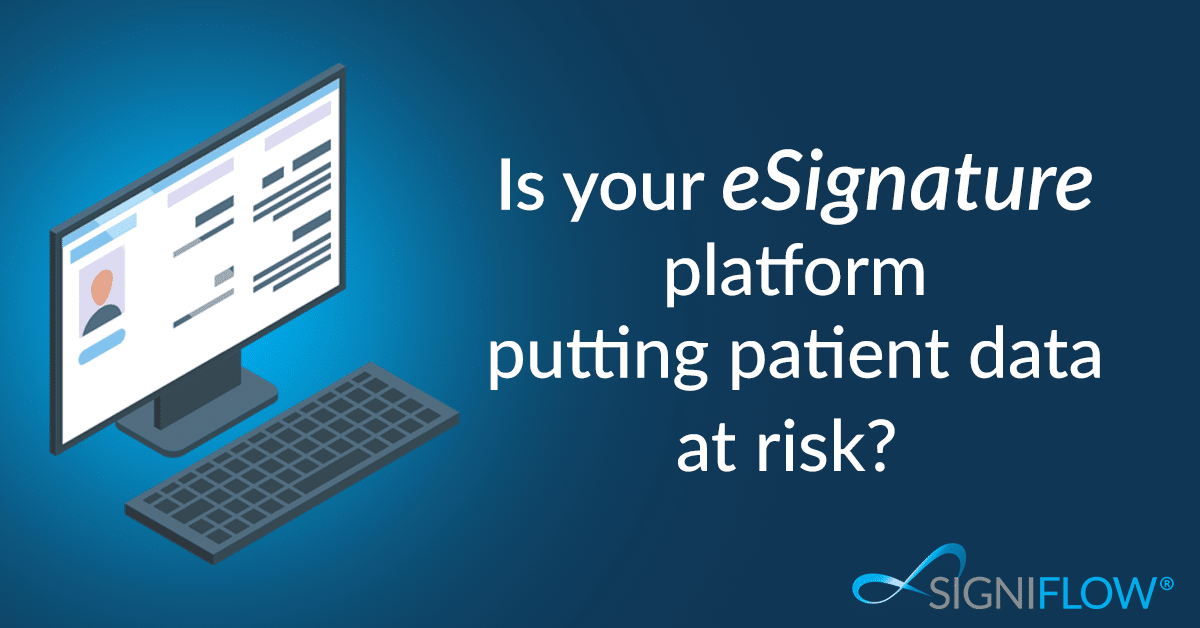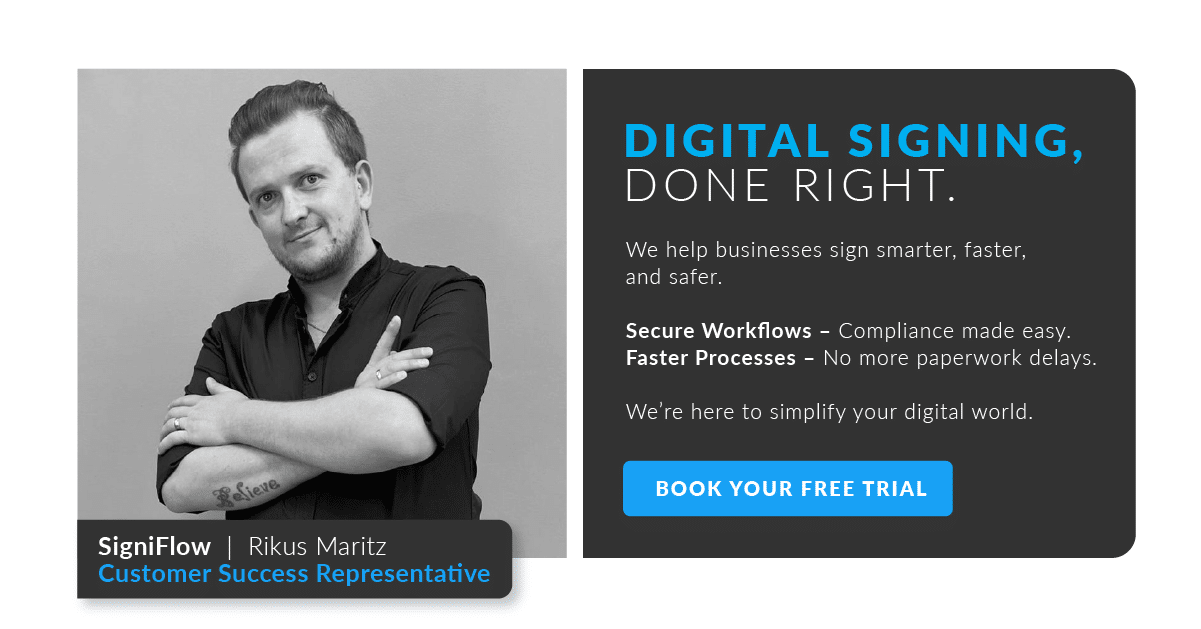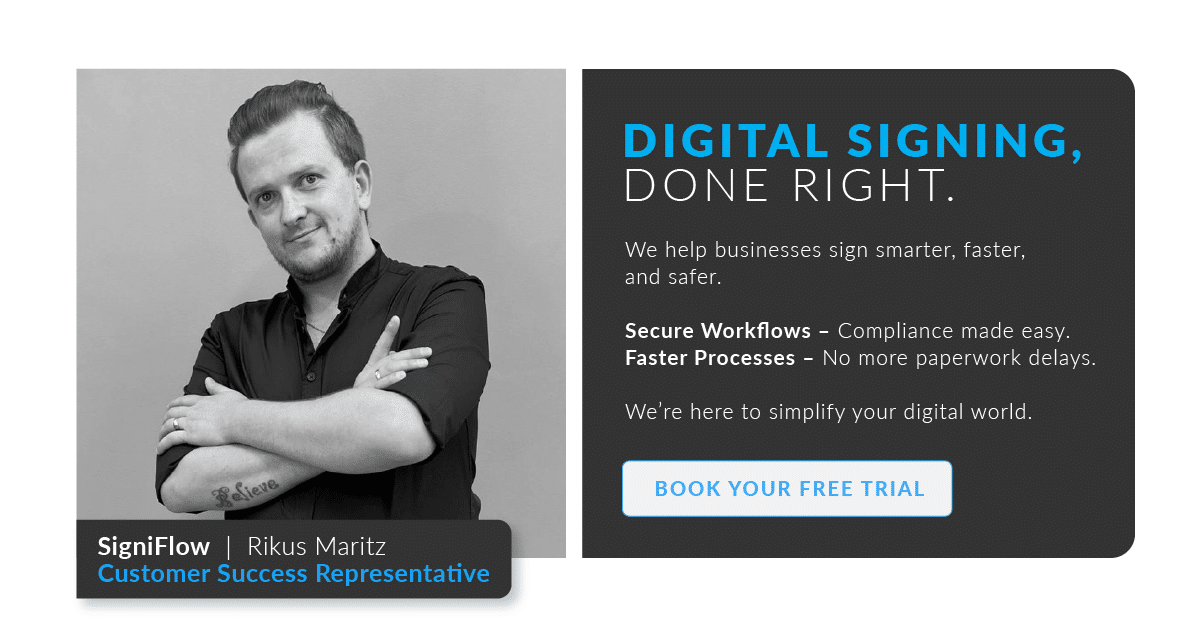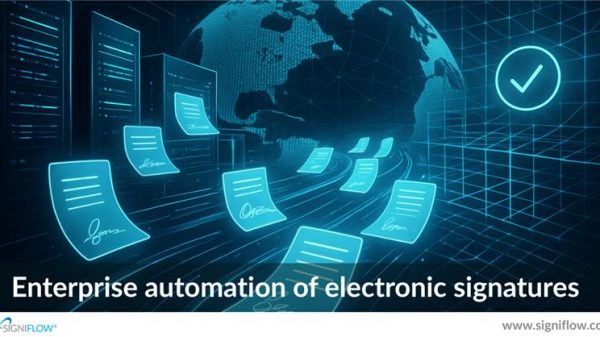When looking at eSignatures, many healthcare providers ask the same question: are they truly compliant with healthcare contracts? The answer depends on multiple factors, including where your data is stored. To keep your contracts compliant for healthcare use, you need to understand how your system handles eSignatures.
The concept of eSignatures sounds simple, but ensuring they are compliant with healthcare contracts involves data residency, security, and on-premise options. Whether your eSignatures are hosted locally or deployed on-premise, compliance for healthcare contracts is all about maintaining control.
Understanding how eSignatures are processed and stored is the difference between healthcare contracts that are just digital – and healthcare contracts that are digital and fully compliant.
Let’s explore what makes eSignatures reliable and compliant in the healthcare contract space.
Why data residency matters for compliant eSignatures in healthcare contracts
Healthcare providers deal with highly sensitive data daily, and eSignatures need to follow strict data residency laws to remain compliant. For healthcare contracts, keeping data within local borders is essential.
Many healthcare organisations have realised that cloud services hosted abroad may jeopardise their eSignatures’ compliance status. By choosing solutions that keep contract data within your jurisdiction, your eSignatures can stay both secure and compliant for healthcare use.
On-premise deployment strengthens eSignatures and healthcare contract compliance
To ensure healthcare contracts are managed securely, on-premise deployments for your eSignatures platform offer unparalleled control. Managing your own environment means healthcare contracts never leave your servers, helping you maintain full compliance.
On-premise solutions are ideal for healthcare providers that prioritise data sovereignty and want their eSignatures to support compliance requirements without compromise.
Local data centres ensure eSignatures support healthcare compliance
For those who can’t fully commit to on-premise, leveraging local data centres helps keep eSignatures and healthcare contracts within national borders.
Local hosting balances security and scalability, providing confidence that your eSignatures meet healthcare contract compliance standards. Always verify that your provider uses trusted, in-country data centres to keep contract data and eSignatures secure and compliant.
Audit trails and encryption: Pillars of compliant eSignatures for healthcare contracts
Having eSignatures in place isn’t enough — you need a full compliance strategy for healthcare contracts, including audit trails and encryption. Solutions with end-to-end encryption and detailed logs give you verifiable proof of signing activities.
This approach ensures eSignatures meet the security requirements expected in healthcare contracts, and that they support overall compliance efforts.
Global compliance at a glance: South Africa, EU, and Australia
South Africa’s requirement: Use of Advanced Electronic Signatures (AES)
In South Africa, healthcare providers may sign most healthcare contracts with basic electronic signatures or more advanced digital signatures where medical prescriptions must be signed with AES. According to local legislation, any contract, record or medical prescription that is specifically mentioned in Law to be signed, requires the use of AES certificates.
AES includes additional layers of identity verification and security, making them legally recognised under the Electronic Communications and Transactions (ECT) Act. If your current eSignature solution does not support AES certificates, it may not meet the standard for eSignatures that are fully compliant for healthcare contracts in South Africa.
EU’s requirement: eIDAS Qualified Electronic Signatures (QES)
In the European Union, the eIDAS Regulation governs eSignatures and places Qualified Electronic Signatures (QES) at the top tier of legal validity.
For eSignatures to be compliant with healthcare contracts in the EU, especially when dealing with cross-border digital health data and legal documents, QES is often required.
These eSignatures must be issued by a Qualified Trust Service Provider (QTSP) and they must offer the highest level of authentication and auditability.
Australia’s requirement: Identity-based authentication under the Electronic Transactions Act
In Australia, eSignatures must comply with the Electronic Transactions Act (ETA), which requires that eSignatures are reliable and that the identity of the signer can be proven.
For eSignatures to be compliant with healthcare contracts, especially under privacy and health regulations, providers must ensure robust identity verification, secure data storage, and full audit trails.
While Australia does not mandate a specific type of eSignature (like AES or QES), proving signer identity and consent is critical to meeting legal and regulatory standards.
Data sovereignty: A rising concern in healthcare contracts and digital signatures
As more healthcare providers digitise their contract processes, data sovereignty has become a top priority. It’s not just about storing data safely—it’s about where that data lives. Many countries are tightening rules around data residency, and in the case of healthcare contracts, this becomes critical. When eSignatures are used, especially in agreements that handle patient data or medical records, storing those documents offshore can raise compliance flags.
Cross-border data transfers open organisations up to unnecessary risk. Choosing a provider that keeps eSignatures and data local—either on-premise or in a compliant in-country data centre—helps reduce exposure and guarantees alignment with local and international data protection laws.
Seamless integration into healthcare systems
Beyond legal compliance, eSignatures must work with your existing digital tools.
Healthcare organisations rely on a complex web of systems: electronic health records (EHR), practice management tools, procurement platforms, and more.
A compliant and efficient eSignature solution should integrate into these platforms to support fast, accurate processing of healthcare contracts. Whether you’re onboarding new staff, managing supplier agreements, or getting sign-off on treatment plans, the ability to insert eSignatures into existing digital workflows without disruption is a must.
This integration ensures speed and efficiency, while preserving data accuracy and security across the full patient and contract lifecycle.
Future-proofing compliance for eSignatures in healthcare contracts
The regulatory landscape is evolving fast—especially in the healthcare industry. From POPIA in South Africa to GDPR in Europe and HIPAA in the U.S., the standards for data protection and digital recordkeeping are only getting stricter.
By choosing solutions that make eSignatures easy to implement and scalable across multiple departments, organisations can future-proof their healthcare contract infrastructure. Look for providers that stay ahead of legislative changes and update their security, audit, and authentication features accordingly.
This allows your teams to maintain trust, reduce legal risks, and handle compliance audits with ease.
Avoiding vendor lock-in: Why flexibility matters in eSignature solutions
When dealing with something as critical as healthcare contracts, flexibility is essential. Many organisations have found themselves locked into proprietary systems that don’t evolve with their compliance needs. To maintain control, it’s important to use eSignatures solutions that offer open APIs, integration flexibility, and deployment options.
Whether you need on-premise infrastructure today or might move to a hybrid model in the future, your vendor should be able to adapt without disrupting your existing healthcare operations. The right partner will help you scale safely while keeping your healthcare contracts secure, compliant, and under your full control.
Building patient trust with secure eSignatures
Patients expect healthcare providers to protect their data and make processes more convenient. Implementing secure, legally compliant eSignatures is one way to deliver on that expectation.
From admission forms and informed consent to medical records access and billing, patients encounter healthcare contracts at multiple points in their care journey. Each of these interactions is a chance to build trust.
When you offer a secure, efficient digital experience, backed by local data storage and industry compliance, you show patients that their wellbeing—and their data—comes first.
SigniFlow: Designed for healthcare contracts and eSignatures compliance
SigniFlow helps healthcare providers achieve full compliance by offering both on-premise and local data centre options for their eSignatures. With full support for Advanced Electronic Signatures, and Qualified Electronic Signatures, along with advanced security features, comprehensive audit capabilities and localised data processing, SigniFlow makes managing healthcare contracts seamless.
Healthcare organisations trust SigniFlow to ensure their eSignatures are secure, legal, and fully compliant with local and international regulations.
Final thoughts: Keeping your eSignatures compliant for healthcare contracts
If you’re in healthcare, you can’t afford to take risks with compliance. To keep your eSignatures and healthcare contracts legally sound, focus on solutions with strong data residency, on-premise capabilities, Advanced Electronic Signatures, and airtight security.
With SigniFlow, you get all of this — ensuring your eSignatures support compliance and your healthcare contracts remain protected at every stage.
Start your free trial here.



